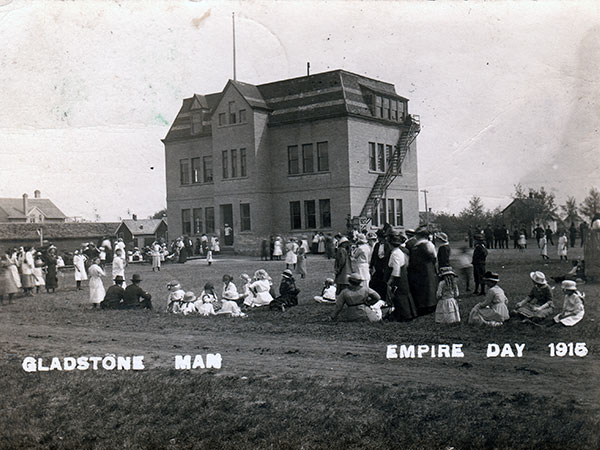A newspaper article in 1910 described Empire Day as an effort to “remind all British subjects of the virtues which make a good citizen, such as loyalty, patriotism, courage, endurance, respect for, and obedience to, lawful authority, and to encourage self-sacrifice for the public good.” Introduced to Manitoba schools on 22 May 1899 in commemoration of the 80th birthday of Queen Victoria, Empire Day was observed each year on the school day preceding Victoria Day, usually on 23 or 24 May. A primary aim in the rapidly populating prairie provinces of the early 20th century was to stimulate Canadian patriotism and imperial loyalty among the children of newly arrived immigrants from countries other than England.
The speeches and activities of Empire Day had special fervour during the First World War and Second World War. It became Citizenship Day (or in some places Commonwealth Day) in 1951.

Postcard of Empire Day activities at Gladstone School (1915)
Source: Gordon Goldsborough, 2012-0172.
See also:
One Hundred Years of History Teaching in Manitoba Schools. Part 1: 1897-1927 by Ken Osborne
Manitoba History, Number 36, Autumn/Winter 1998-1999Citizenship and Schooling in Manitoba, 1918-1945 by Rose Bruno-Jofre
Manitoba History, Number 36, Autumn/Winter 1998-1999
“Empire Day at the city schools”, Manitoba Free Press, 23 May 1899, page 7.
“Empire Day in Canada”, Manitoba Free Press, 21 May 1910, page 21.
This page was prepared by Gordon Goldsborough.
Profile revised: 13 January 2013